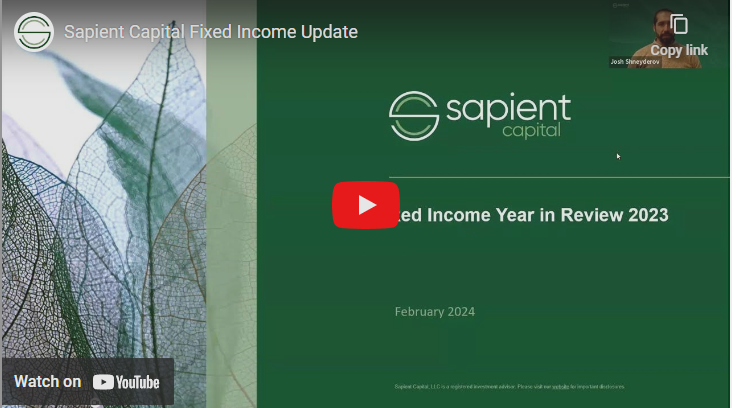Those who see the patterns, predict the future
[A few of you have asked for audio versions of these articles, you can now click here to listen rather than read].
In case you missed it, this week Sapient Capital’s Founding Partner Tom Pence offered his latest thoughts on macro and markets. We also hosted a great client presentation on Artificial Intelligence with Rohit Krishnan
This week I appeared on Spencer Kier’s podcast Audience of One to chat about curiosity and some of the questions I’m wrestling with currently.
I adamantly believe the primary benefit of wealth is the freedom to follow your own interests. This week’s piece continues my exploration of curiosity’s relationship to the hidden societal shift that is unfolding around us.
Why do Superheroes Wear Masks?
[16 minute read]
Behind this mask there is more than just flesh. Beneath this mask there is an idea… and ideas are bulletproof.
-V, V For Vendetta
I’ve just finished the 2018 book Catafalque by Peter Kingsley. It’s the best thing I’ve read in a few years.
It’s a dark, mysterious and passionate examination of the psychologist Carl Jung. When most people are only comfortable examining the world we already know, Jung was one of a small number of pioneers brave enough to explore the far vaster reaches of the psychological worlds we don’t.
Kingsley believes that Jung was a prophet.
What does that ancient, loaded word mean, and what does a modern prophet do?

I am most fond of John Vervaeke’s definition:
A prophet is not somebody who tells the future like some sort of psychic. Prophecy isn’t about telling you what’s going to be happening 200 or 300 years from now. Prophecy means “a telling forth”. The job of the prophet is to wake you up right now to how you are off course.
A “prophet” first warns you that you’ve gone wrong, then sacrifices themselves to find a new path, then returns to tell everyone else where to find it.
Jung did all three.
But, despite privately accepting his role as a prophet, he went out of his way to deny it in public. Not only does identifying yourself as a prophet risk massive ego inflation, it also distracts everyone from the truths being spoken. “Who does this guy think he is!?”
This is why it’s essential to focus on the truth of a prophet’s ideas, rather than the prophet themselves. A superhero wears a mask to embody an idea without the distraction of their personal identity.
Jung’s Diagnosis
“A madman is not someone who has lost his reason, but someone who has lost everything but his reason”
―G. K. Chesterton
Jung experienced a prolonged bout of depression and insanity. What he saw in his personal hell was both familiar and neglected. His psychological diagnosis of our core problem was almost identical to all our prophets before or since.1 He saw that overreliance on our analytical intelligence was killing us, and everything around us.
He said that “the more critical reason dominates, the more impoverished life becomes.” Our intellect becomes problematic when it operates without a sense of broad context. When severed from intuition, reason can be controlling, blind and destructive. I have come to believe it’s the hidden cause behind our interweaving economic, environmental, geopolitical and mental health crises.
Jung saw that using exponentially more powerful technology without equivalent wisdom represented a huge new risk.
“America does not see that it is in any danger. It does not understand that it is facing its most tragic moment: a moment in which it must make a choice to master its machines or to be devoured by them.”
Jung’s warning is even more relevant and prophetic now we have summoned coldly-rational technologies that could destroy our entire planet. Nobody seems to have any definitive idea of how this dynamic will play our in the A.I. arms race that’s unfolding right now.2 Whether it’s profits, engagement, warheads or paperclips, optimizing for a single “rational” goal often comes at the cost of everything else, including life itself.
But I tend to believe that diagnosis of our problems is table-stakes at this point. Moreover, the sheer enormity of the crisis can cause apathetic nihilism rather than the urgent sense of personal agency that’s required.
There are plenty of prophets who can tell you where we’re going wrong, but sadly infinitely fewer that can tell you where to go next.
Jung was one of them.
Jung’s Prescription
Reading Catafalque I was struck, once again, by how all the most prophetic individuals identified the same problems, but also how the only very best identified the same solutions.
What did Jung bring back from the underworld? He found that there was a greater intelligence accessible to us than our own minds. Intellect going rogue was the diagnosis, so returning it to the guidance of this higher power was the prescription.3 Jung believed that we have rejected “the sacred” and the immense power of the “divine will.” As Kingsley writes:
The neglected reality this all comes back to is, for Jung, the fact that everything meaningful or worthwhile depends absolutely on the divine will.
In a framing that’s reminiscent of Taoism, Jung believed we could surrender our narrow reason, ego, to these broader forces that guide us. Kingsley:
It’s all done through us, for us. In fact we don’t do a thing because, thanks to a divine process we can’t or won’t acknowledge, it’s the sacred that takes care of everything.
Religious words like “divine” and “sacred” are obviously triggering in today’s secularised world. Indeed, it’s not even entirely obvious what they mean in this context. So Jung knew that in order to be understood he would have to translate his insights into the scientific language of the day. This was what he attempted to do through his psychological theories.4
Today the voice of one crying out in the wilderness must necessarily strike a scientific tone if the ear of the multitude is to be reached.
Today’s prophet isn’t waving a placard in Times Square. Instead they perform the essential evolutionary task of translating an urgent message into a scientific language more people can understand and accept.
The concept of the shadow is central to Jung’s work. This is the neglected or disowned part of our psyches. If we can reintegrate the shadow side of the Western mind, reason, we might be whole again. Our fall was caused by the rational intellect rejecting its source, it might also be healed by its return. Kingsley quotes a line from the Grail legend “the wound is only healed by the lance that made it.” We can flip our left-hemispheric gifts back in service of the right. This will mean rebuilding the road back to meaning through science and technology.
A Prodigal Culture?
Jung wasn’t entirely optimistic about our ability to turn things around in time. Kingsley is downright dejected.
If the only way out is through science, we need to be looking to scientific prophets for answers. My friend David Weinstein recently sent me a thrillingly optimistic essay written in response to Kingsley by the philosopher Bernardo Kastrup (below). Kastrup wonders if the role of the West, echoing Winston Churchill’s description of Americans, is to do the right thing only after we’ve tried everything else first.
But I don’t think that these Western errors are a waste of time either. Wisdom sometimes comes only with error, as any wounded healer will know. Sometimes a misstep is more useful and important than the correct way forward, because of the experiences and insights it creates the space for…
.. The destiny of Western culture may, for all I know, intrinsically entail experimenting with extremely seductive but wrong answers first, exhausting the alternatives, and only then setting itself straight. Of course, the price we pay for this is unfathomable. Generation upon generation have endured grief, despair, unspeakable suffering of every kind for having followed the siren song of illusion. This is the West’s sacrifice. The only question is whether we will eventually get it right or not.
The postmodern descent into nihilism may be a natural process of elimination where we lose hope in everything but the truth. Our old institutions, ideologies, dogma and rationality itself were never strong enough to support our weight, so they needed to collapse.
A big sign that Kastrup is right is that materialist science has already undermined itself through quantum physics. It’s just we haven’t known how to integrate its spooky findings into our worldview because it violates what we think we know about time and space.
The kind of idea, or anomaly, that might open us up to quantum “woo” is one I recently explored in Ervin Lazlo’s Akashic field theory. This describes a universal information field not bound by time or space. Even if it’s not exactly the right answer it’s the right kind of wrong answer. This is because it provides a rationalist-friendly suggestion that we might be able to access a massively more “intelligent” resource than the limited intellect that’s killing us. It also reconciles some of the “woo” psychic phenomena I’ve recently been bewildered to learn are relatively well supported by science. Indeed, it would even be a potential explanation for the sudden downloads of insight frequently experienced by scientists themselves.
The weakness of Laszlo’s theory, and others like it is that, most of us have no grounding in the kind of quantum physics required to personally validate if it’s true. It just might take a lot more explanation and time to sink in. A new language.
The movie Arrival tells the story of a sudden alien encounter. By learning their symbolic “Heptapod” language, humanity gains the ability to see across time and avoid a future nuclear conflict. The metaphor is pretty clear: a revolution in scientific language could help incorporate the anomaly that shifts our zero-sum mindset in time to save us.
What Does This Mean For You?
Kastrup makes the elegant point that we may require a direct experience of Jung’s ultimate reality in order to change, but we often need to be open-minded enough in order to have those experiences in the first place!
Only direct experience is transformative. However, given the mindset of Western culture, one must first give oneself intellectual permission to have the experience, to be rationally open to it, in order to have any chance of experiencing it. One must be conceptually primed to accept the experience if and when it comes, for otherwise our rational defense mechanisms will instinctively and promptly shut ourselves off from it.
Once again, the direct link between open-mindedness, growth and wisdom is revealed. Expanding the range of questions we’re willing to ask determines the transformational nature of the answers we receive. As Kastrup poetically writes:
Intellect is the bouncer of the heart. In the West, what the intellect dismisses as impossible, or nonsense, or woo, or flakey, bounces off our head and never sinks in.
Rationality specifically prevents us from experiencing a connection to any higher intelligence, it blocks us from life. In Dante’s innermost, ninth circle of hell, Satan is trapped, frozen in ice up to his chest. He represents the worst of all sins; betrayal. This is our rejection of guidance from a higher intelligence. Refusing to accept it even exists. Dante’s intuition was that severing that connection and turning against life was the single worst thing you could do, and the punishment was to be frozen in time, in a hell outside of the flow of life.
The “good news” is that the Internet means we can find new prophets more easily than ever before, and the prophets can find each other. This is precisely what’s happening in some bright corners of the web right now. The emerging science of complexity indicates that the optimal path of a human is to become maximally individualised (or individuated, to use Jung’s term), while still remaining integrated in service of the whole. This turns zero-sum games into positive-sum games. The arbitrary distinction between what’s selfish or selfless simply collapses into a meaningful life path that works for everyone.
Where Jung talks about the “divine will”, I see the mysterious power of following our own curiosity.5 Curiosity is a conversational relationship with a higher intelligence. It can lead us to that magical intersection of where what we love meets what the world needs; our evolutionary niche.
This intelligence might be “the anomaly” that’s waiting to be incorporated into our stale worldview. It is what guides us in our explorations, and it offers us signposts along the way. Jung is particularly associated with the concept of synchronicities; meaningful coincidences that can seem to accelerate when we’re on the right path.
Attraction to certain information is a guiding force that leads us to our individuation.
Do You Have Superpowers?
There’s a wonderful final idea here. If we integrate “the anomaly” into our culture, do we also do the same in our own psyches? The most woo interpretation is that, by opening ourselves up to a wider range of psychic potential, we can manifest those latent abilities in ourselves. Jung certainly believed that individuation could unlock our hidden intuitive or creative talents. Superheroes end up with superpowers. Perhaps our current cultural obsession with that genre reflects more than just fantastical wish-fulfillment.
A more plausible, but no less optimistic outcome, is that we become more open to the guiding influence of a wider intelligence in our environment. This helps us know what to do, and when. This is functionally equivalent to wisdom, and walking the optimal path of a human being. But if you betray that gift, like Dante’s Satan trapped in ice, you’ll get stuck.
The right idea, at the right time, can spread quickly. The nature of phase changes & revolutions is that they suddenly propagate through an entire system. In V For Vendetta, the protagonist V is horribly burned in a fire. He then becomes an outspoken insurgent against the crushing oppression of the current regime. At the climax of the movie, the entire population dons V’s iconic Guy Fawkes mask to storm parliament, the headquarters of their fascist overlords. The idea itself has been spread by the prophet and embodied by the people. Our curiosity can help lead us all to that idea together.
When Dr. Jung was once asked what the meaning of a human life was, he replied that it was to relocate the center of gravity of the personality from the ego to the Self, another way of saying what the apostle Paul once observed: “I must decrease that He may increase.”
Robert Johnson, Balancing Heaven and Earth
Related Reading, Watching and Listening.
- Read. The Cry of Merlin: Carl Jung and the Insanity of Reason, Gregory Shaw on Peter Kingsley (36 minute read).
- Why read. This review of Catafalque will be a strong indicator of if you want to read the whole book (FYI it’s technically an 800 page book, but half is endnotes and it’s very big font, so it’s actually a deceptively quick read). Thanks to our former Blackberry conference speaker Alexander Beiner for the recommendation!
- Catafalque is Kingsley’s best book. It is a prophetic masterpiece that rearranges everything you may have thought about your life, your culture, and your identity.
- The focus of Catafalque is Carl Jung, his Red Book, and the end of our world; hence the title, “catafalque,” an elaborate structure that supports a coffin in a funeral, and it is our funeral. This is, without question, a very depressing book. Yet its journey into darkness—and it just gets darker and darker and darker—is, for those who can bear it, an initiation into a world we have long forgotten and which Jung, and now Kingsley, have revealed to us….whether we like it or not.
- Read. The destiny of Western culture: An open letter to Peter Kingsley by Bernardo Kastrup (57 minute read).
- Why read. Kingsley’s book is ultimately pessimistic, perhaps to be provocative, in order to galvanize us into overdue action. Kastrup’s much more optimistic response, although challenging to read, seems intuitively right.
- Listen/Watch. Misalignment, AI & Moloch- Daniel Schmachtenberger and Liv Boeree (1 hour 31 minute listen/watch)
- Why listen/watch. Daniel Schmachtenberger is one of the most articulate speakers on the topic of the multi-polar trap dynamics that scared Jung so profoundly. Liv Boeree is also doing a wonderful job explaining Moloch and specifically the win-lose dynamics we are now facing with the development and democratization of AI. Liv also voiced a great animation of one of Scott Alexander’s short stories, “The Goddess of Everything Else”. It’s an optimistic account of how zero-sum games in nature tend to give way to positive-sum games at a greater scale. This has also been a fascinating recurring theme of Brett Andersen’s Intimations of a New Worldview.
[Thanks to Frederik Gieschen and Ed William for the editing help!]
The information provided is for educational and informational purposes only and does not constitute investment advice and it should not be relied on as such. It should not be considered a solicitation to buy or an offer to sell a security. It does not take into account any investor’s particular investment objectives, strategies, tax status or investment horizon. You should consult your attorney or tax advisor.
The views expressed in this commentary are subject to change based on market and other conditions. These documents may contain certain statements that may be deemed forward looking statements. Please note that any such statements are not guarantees of any future performance and actual results or developments may differ materially from those projected. Any projections, market outlooks, or estimates are based upon certain assumptions and should not be.
1 This is Iain McGilchrist’s left hemisphere of our brain. William Blake’s Satanic god Urizen (“Your Reason”). I asked my Twitter followers who in the last 200 years they’d define as prophets. Personally I’d recommend the works of Joseph Campbell, Iain McGilchrist, Friedrich Nietzsche, Aleksandr Solzenitsyn and William Blake. N.S. Lyons remarkable article A Prophecy of Evil also convinced me that C.S. Lewis and Tolkien saw the diagnosis as clearly as anyone else.
2 My favourite example is Chairman Mao’s “smash sparrows” campaign. It was intended to protect Chinese grain stores from birds. In eliminating birds, the locust population exploded and contributed to a famine that killed over 50 million people. It’s one of the worst man-made tragedies in history. And it resulted from using our immense power without a broader understanding of the overall environmental context. [If you want a deeper examination check out the podcast above, or simply watch Chris Nolan’s Oppenheimer].
3 This is very resonant with McGilchrist’s framing of The Master and Emissary- with the brain’s analytical left hemisphere emissary being returned to the guidance of the master; the holistic right .
4 For the “how” of individuation and Jung’s psychology, you really need to go directly to Jung himself. I haven’t read that many of his books, but found Memories, Dreams, Reflections relatively accessible. The Red Book is… not. It’s more of a trip diary.
5 Jordan Peterson’s interpretation of Jung in his remarkable Lacob’s Ladder lecture was that he seemed to believe something similar.


